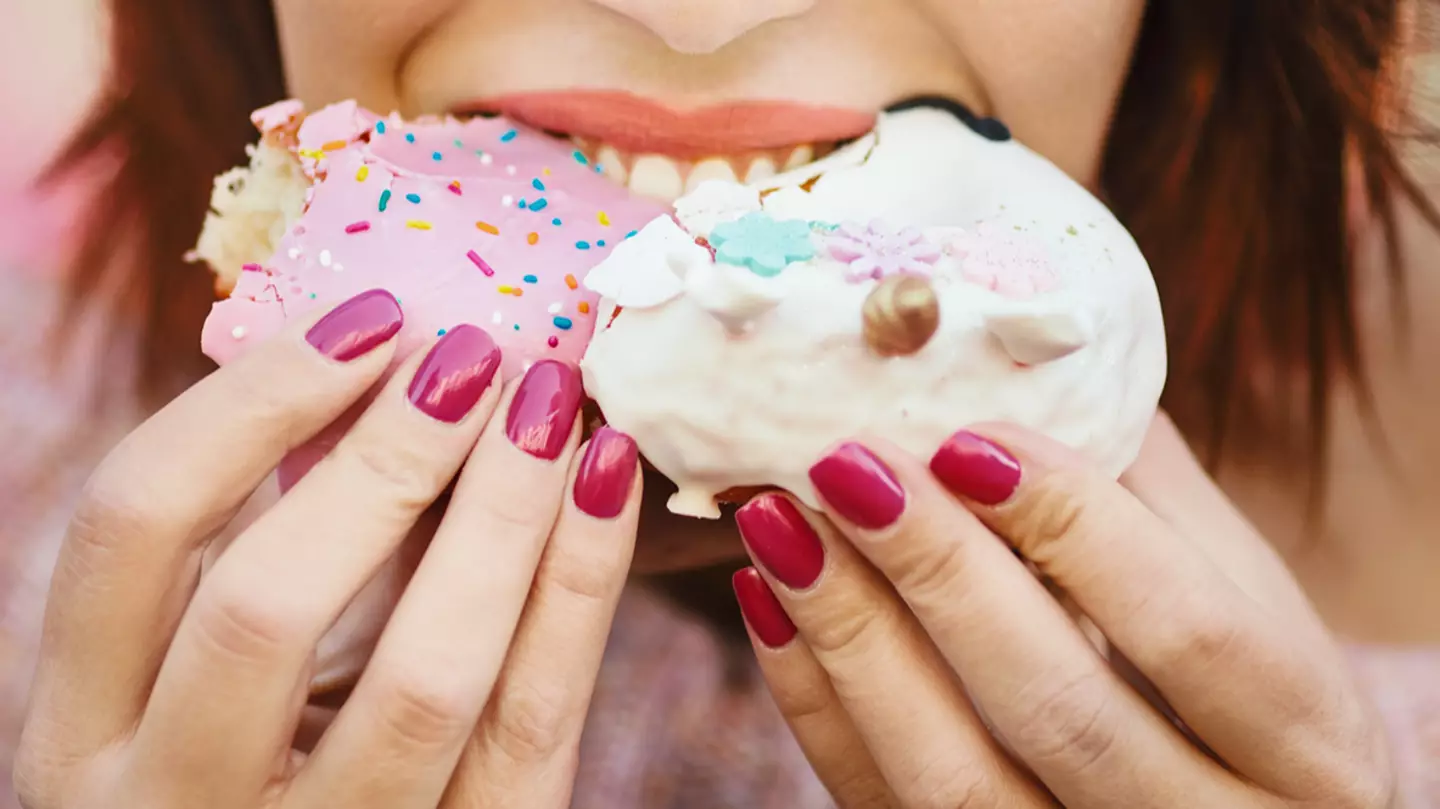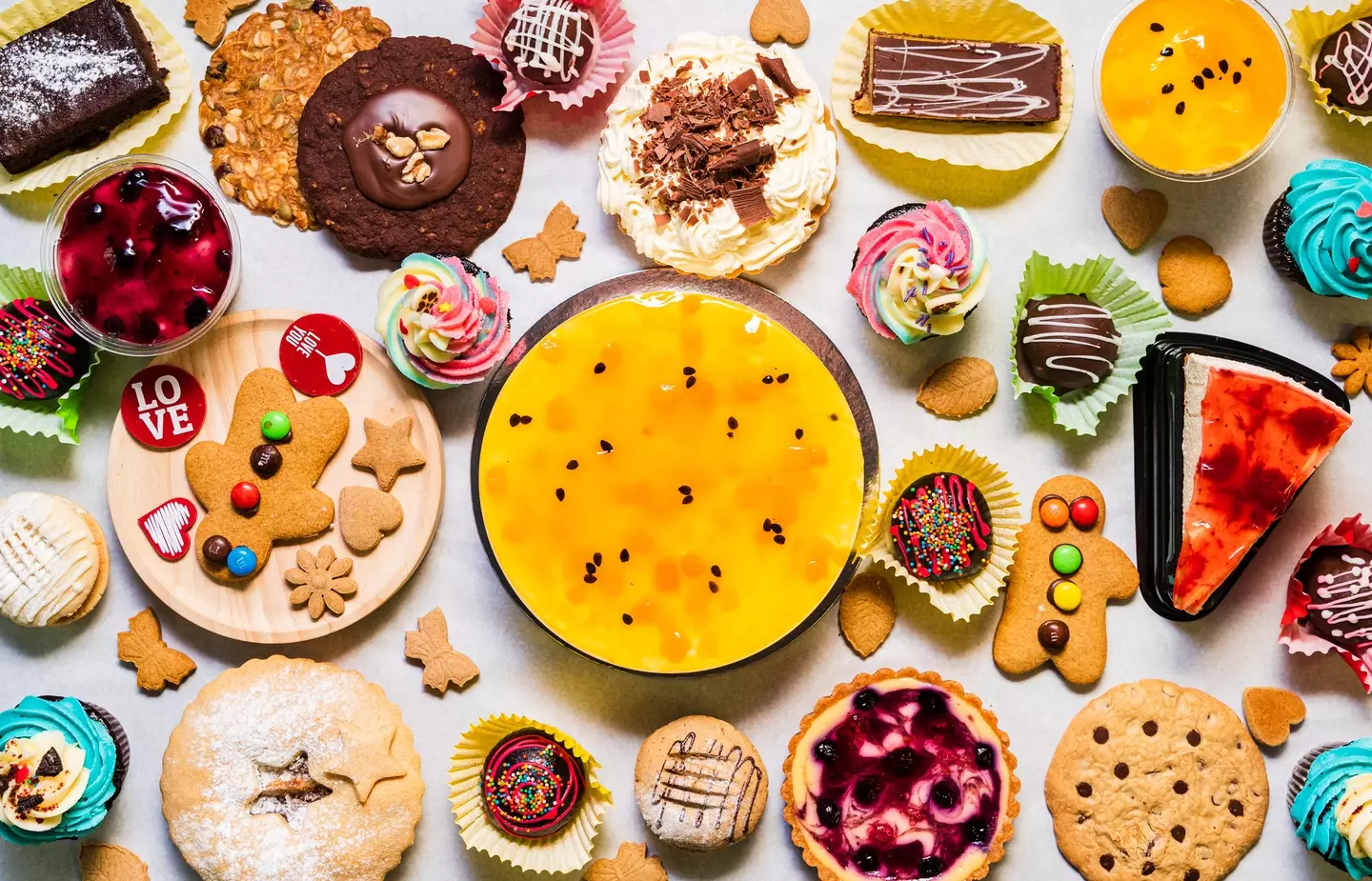
It's a phenomenon we've joked about for years.
There's nothing like eating a huge meal, swearing you can't possibly eat anymore, only to crave a sweet treat some ten or so minutes later.
Whether you're out at a restaurant or you've ordered take-out as a Friday night treat - we usually end up wanting something more.
And while it's become somewhat of a meme on social media, it turns out our second 'dessert stomach' is actually a real thing, according to science.
Advert
Researchers from the Max Planck Institute for Metabolism Research in Germany have discovered why, and it's all to do with sugar and our brains.
How does our 'dessert' stomach work?

Ok, so we don't really have two stomachs, as much as it may feel like it.
But it turns out that the same nerve cells that tell us we are full are also responsible for making us crave something sweet.
Researchers studied the reaction of mice to sugar and found that 'completely satiated mice still ate desserts,' according to the peer-reviewed paper.
That's thanks to a group of nerve cells, called POMC neurones, which became active as soon as the mice were given access to sugar, re-engaging their appetite.
When eating sugar, the body's own opiate known as ß-endorphin was activated.
"This acts on other nerve cells with opiate receptors and triggers a feeling of reward, that causes the mice to eat sugar even beyond fullness," the report explains.

Interestingly, this opioid pathway in the brain was only 'specifically activated when the mice ate additional sugar' - but not when they ate 'normal or fatty food.'
Furthermore, mice just perceiving the sugar before eating it was enough to trigger the response.
Yet in hungry mice, the inhibition of ß-endorphin release had no effect. And when the researchers blocked this pathway, the mice refrained from eating additional sugar at all.
Does this translate to humans?
Humans were also studied for this fascinating research project.
Scientists carried out brain scans on volunteers who received a sugar solution through a tube - less enticing than a huge, sugary donut...

But anyway, they found that the same region of the brain - containing 'many opiate receptors close to satiety neurons' - reacted to the sugar in humans.
Henning Fenselau, research group leader at the Max Planck Institute for Metabolism Research and head of the study, explained: "From an evolutionary perspective, this makes sense: sugar is rare in nature, but provides quick energy.
"The brain is programmed to control the intake of sugar whenever it is available,"
These findings not only give us scientific backing for our cravings, but they could help the treatment of obesity too.
Fenselau said: "There are already drugs that block opiate receptors in the brain, but the weight loss is less than with appetite-suppressant injections.
"We believe that a combination with them or with other therapies could be very useful. However, we need to investigate this further."
Topics: Science, Health, Food and Drink, Social Media, Germany, Nature